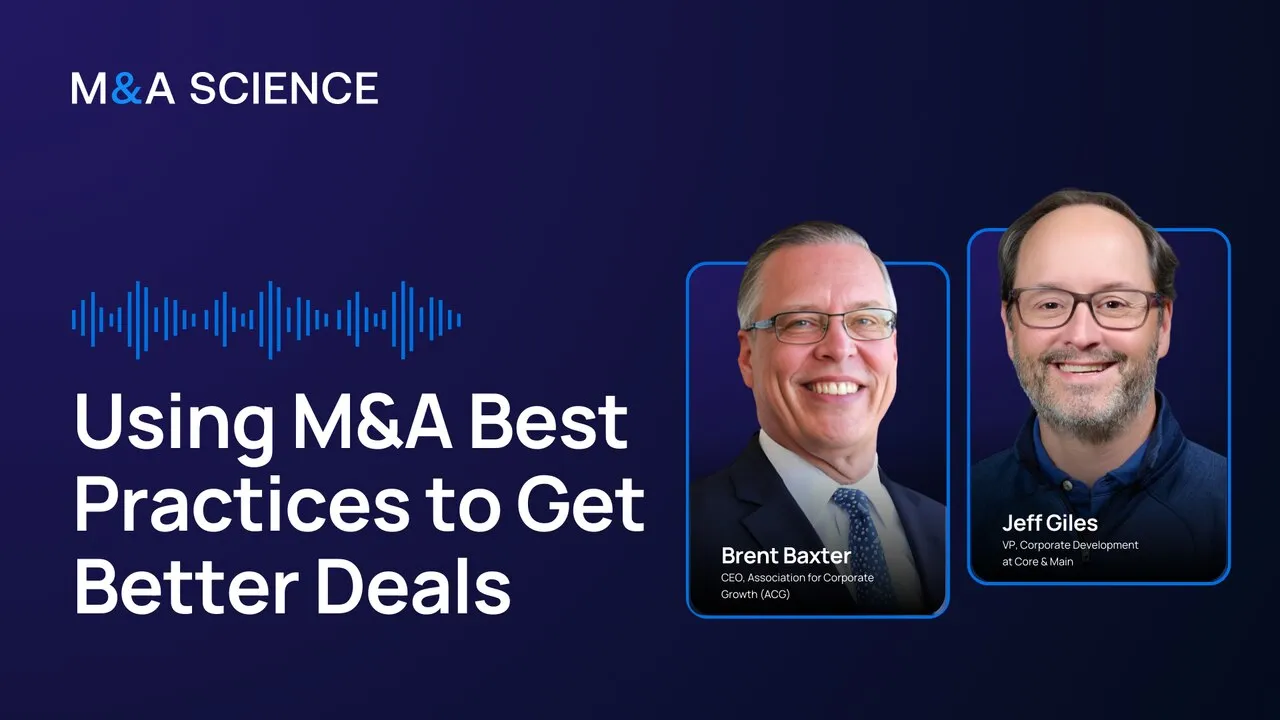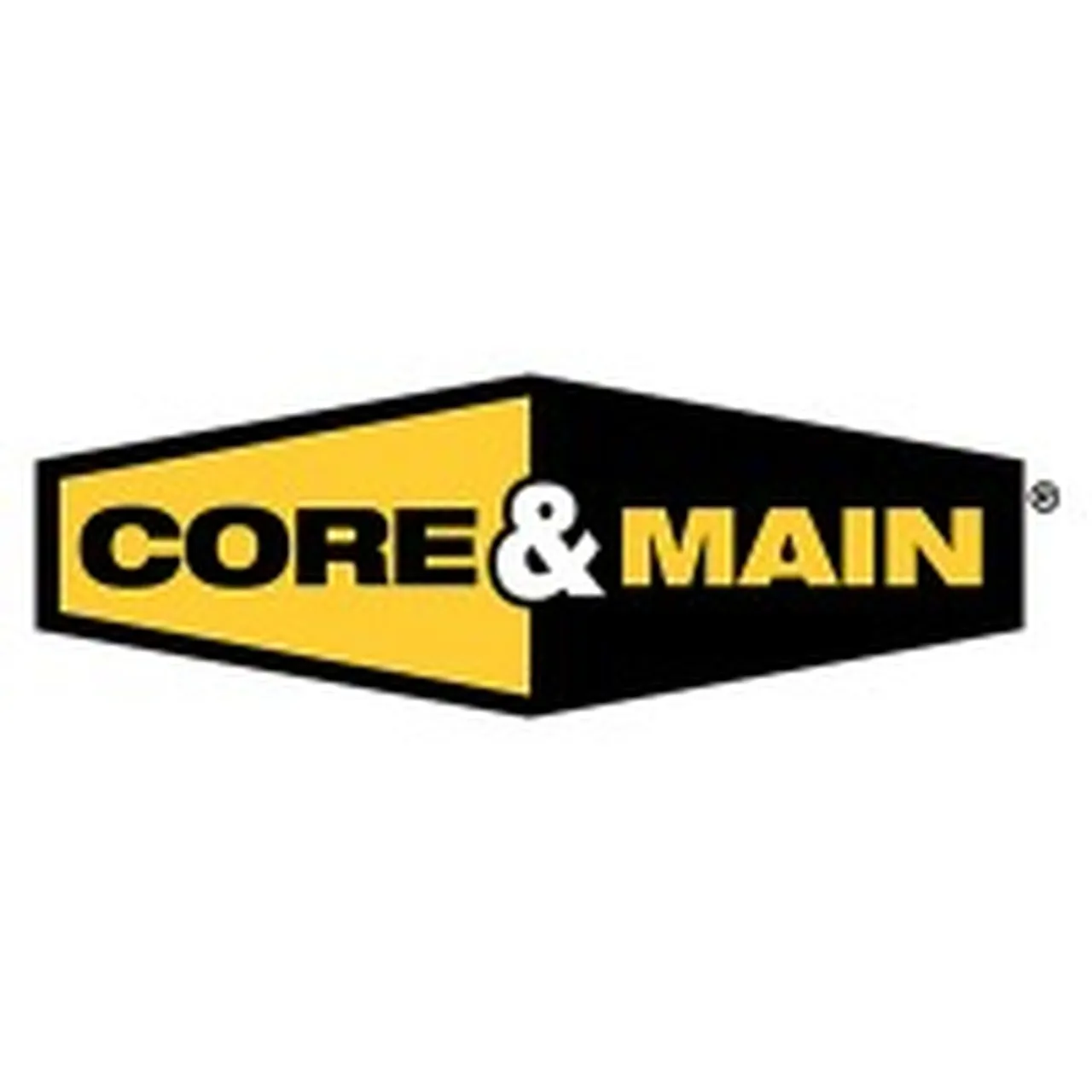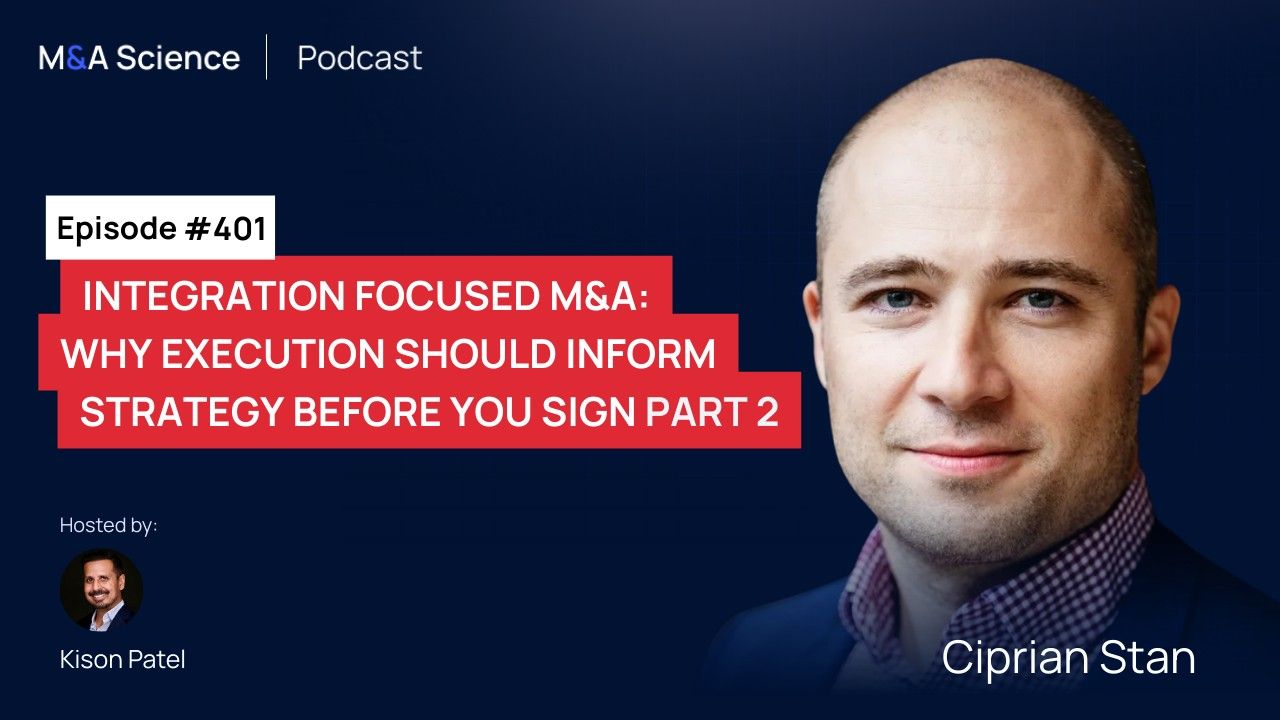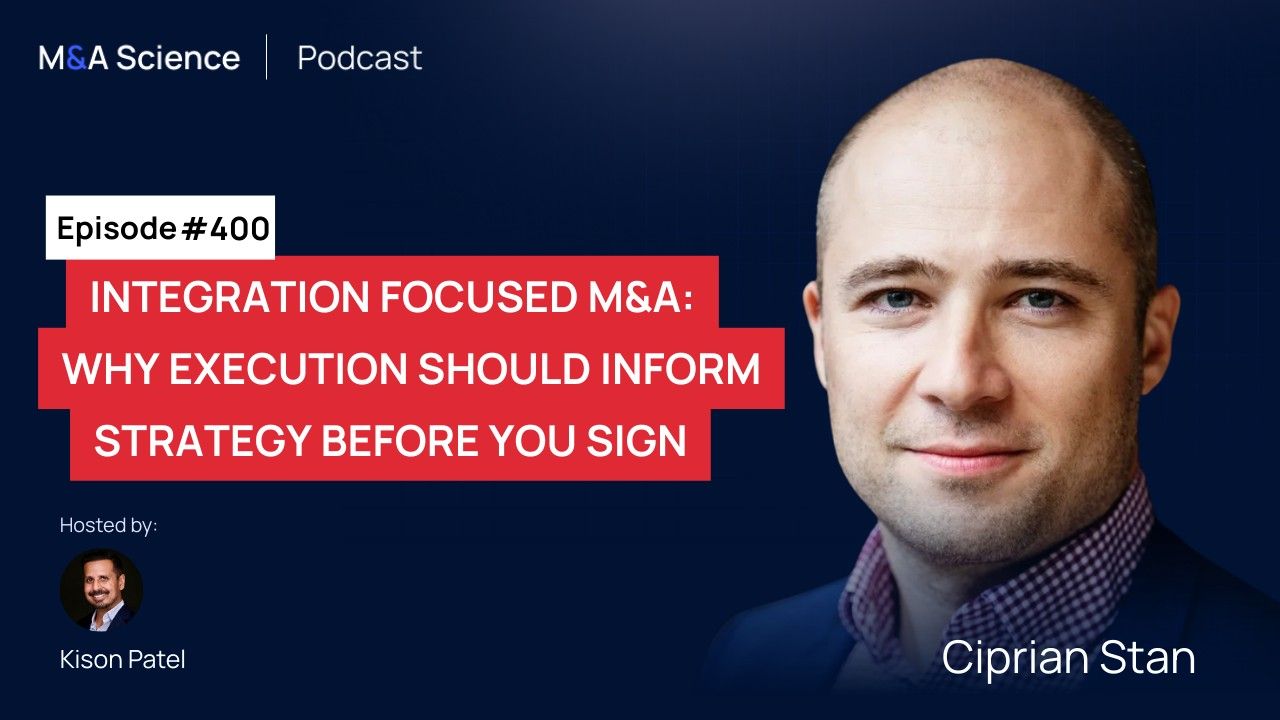
Founded in 1954, the Association for Corporate Growth (ACG) has 60 chapters worldwide, representing 15,000 members. ACG serves 90,000 investors, owners, executives, lenders and advisers to growing middle-market companies. ACG’s mission is to drive middle-market growth.
Based in St. Louis, Core & Main is a leader in advancing reliable infrastructure™ with local service, nationwide®. As a leading specialized distributor with a focus on water, wastewater, storm drainage and fire protection products, and related services, Core & Main provides solutions to municipalities, private water companies and professional contractors across municipal, non-residential and residential end markets, nationwide. With approximately 320 locations across the U.S., the company provides its customers local expertise backed by a national supply chain. Core & Main’s 4,500 associates are committed to helping their communities thrive with safe and reliable infrastructure.
Brent Baxter
Brent Baxter is the Chief Executive Officer of the Association for Corporate Growth (ACG), a role he has held for seven months. With over 25 years of experience as an investment banker and extensive involvement in ACG's governance, including serving as chair of the board, Brent brings deep M&A expertise to his position. ACG, the premier organization for middle-market M&A, boasts over 15,000 members, including corporate strategic acquirers, private equity, investment banking, and various M&A partners such as legal, accounting, tax, and human resource consulting professionals.
Jeff Giles
Jeff Giles is the Executive Vice President of Corporate Development for Core & Main, leading the acquisition of distributors in water, wastewater, storm drainage, geosynthetics, natural gas, and fire protection products across the US and Canada. With nearly six years at Core & Main, he has spearheaded 33 acquisitions, including Eastern Supply. Previously, Jeff played a key role at Barry-Wehmiller, doubling its size to $3 billion in revenue through strategic acquisitions. He also has extensive private equity experience with firms like Bertram Capital.
Episode Transcript
Getting deals faster
J.G: What we've really built here at Core & Main is a proprietary process-driven approach to originating deals outside of a process. It comes down to a number of different areas. First and foremost, we built out very comprehensive market maps.
It’s important to have a clear lay of the land in both the core markets and the adjacent markets. You can’t find targets and develop relationships if you don’t know the companies that are relevant.
So we spent a lot of time ensuring we have a comprehensive view of that, working in collaboration with the field leadership teams who are on the ground, competing with these companies, and familiar with these individuals.
That's first and foremost. Then, it comes down to building relationships over time. It's rare to call a business owner or management team and they'll be immediately ready to sell their business.
It's about being in the right place at the right time and building that relationship over time. One of the things that has made Core & Main so successful is a bit of a network effect. Success breeds success. We started off with smaller acquisitions and ramped up to larger ones, really hitting on all cylinders. We've been very busy in the last few years.
We've actually had business owners contact us and say, 'Hey, I saw you bought XYZ company. I know those individuals and they're good people. You must be good people. We should talk.' That's an ideal scenario, but it's about getting out there, building the relationships, and ultimately doing what you say you're going to do when you're going through a process.
B.B: Yeah, relationship is exactly the right word, although M&A always ends in a transaction. The transaction never happens without a relationship. The ACG has taken a pretty meaningful role over 25 years. With private equity emerging as an asset class, you now have roughly one-third of all middle market transactions being a private equity purchase, and they've taken a significant market share.
Twenty-five years ago, private equity would have been less than 10%. It is a very competitive market. One of the roles that ACG plays is to facilitate meaningful relationships or valued relationships. So, how do we connect in what is essentially a very inefficient market?
How do we make it more efficient? There was a study, a bit dated, but a consulting firm looked at 850 middle market transactions over a period of time, and there were 550 different investment banks representing those sellers. ACG's role is to try to connect relevant buyers with relevant sellers, relevant advisors with potential clients.
Being able to connect industrial-related investment banks with private equity and strategics who are in those spaces is a really vital service of ACG.
Target outreach
J.G: There is a balance. The vast majority of the transactions we've completed have been the result of proprietary outreach, with no investment banker involved. However, we have acquired businesses that have gone through a process with a banker involved.
There are pros and cons to both. Having an investment banker involved who knows the process and the seller's hot buttons is extremely helpful. It makes for a much more efficient process.
However, when dealing directly with a business owner, sometimes the valuation is better, but it's a challenge for them to manage the process while running their business. These are generally great entrepreneurs and operators who have built these businesses but are new to the idea of selling their business.
It's a toss-up when you're dealing with an individual trying to run their business and manage the selling process. Getting the information can be extremely challenging, but generally, it's worth it if you can stay patient and help them navigate.
Regarding being the first call, it goes back to reputation. The goal is to establish the business as the acquirer of choice in the industry. You do that by being active and successful. Our story has been pretty good. The performance has been good, both organically and through M&A in our core and adjacent markets. We went public in July of '21, which was a fun experience and brought more recognition to the company.
Success breeds success. It's about timing, relationships, and doing what you say you're going to do. Being forthright in all communications is something I take pride in. It's important for all of our teams, across the entire process, to not make commitments we cannot stand behind. Otherwise, your word means nothing, and you won't have the opportunity to continue doing great things.
B.B: The role of ACG, which I view as a toolkit, is to make jobs more efficient or to deepen relationships.
Considering the market's fragmentation, Jeff and his team are looking to buy companies in all 50 states, aiming to be the consolidator of choice. Ideally, they want every investment bank or business broker to know who they are and what they're looking to buy. They also want every accounting firm with transcribed clients in their space to be aware of their interests.
We're investing a lot in data and data connectivity at ACG to deepen that knowledge base within our own membership. This helps us connect firms like Core & Main and individuals like Jeff with potential deals that might materialize six months or two years from now.
J.G: Yeah. Adding onto that, as I mentioned, we have acquired several businesses that were in a formal auction process with an investment banker. In fact, there's one who sold us two businesses, which has been great. He's active in the space, has built a good reputation, and ran a fair process.
Ultimately, we prevailed twice. There's certainly value there. To Brent's point, I'd love for every investment banker to call us when they have a deal. We know that's not always going to happen, but it's important they know who we are.
If you're a banker marketing a business in our space and you don't call us, it's likely because we're on the 'do not call' list, and they don't want to sell to a strategic buyer, which does occasionally happen. However, given our size, scale, and what we've accomplished, we're usually on the list. At that point, we've got to prove ourselves, and it goes back to the relationship.
Having a connection with the banker in advance can be helpful. Not that they're going to give you any insider information, but just that they know how you operate, they can trust you and you trust them, which is very helpful. There's great value in what ACG brings to the table in those relationships. I've developed them over many years; Brent and I probably met 15 plus years ago or something like that.
Best practices when building relationships
J.G: For us, when discussing acquisition candidates, we've already done the legwork of building out the market maps. We know the companies that would be a good strategic and cultural fit. Identifying them is easy. You figure out the best way to make contact in a genuine manner.
Usually, they know who we are. In virtually all cases, the worst message we get when reaching out to a company is, 'Hey, thanks for the call. We're flattered, but we're not interested at this time. If and when we decide to sell, you'll be our first call.' We love to hear that, and we've seen it play out in some of our historical relationships.
Then it's about keeping that contact, asking if it’s possible to reach out every six months or so, and usually, they agree. It's not rocket science. It goes back to doing what you say you're going to do, building a great reputation in the industry, proving the company’s ability to execute transactions, integrate companies, and create opportunities for all the people who joins through acquisition.
When other business owners see this, some express interest in joining our team as well.
Regarding investment bankers or other service providers, we have to approach this more broadly because we don't have the time to individually reach out to the thousands of investment bankers in the country. And not all are dealing in businesses relevant to us. Back in my private equity days, as Brent knows, I attended many ACG events and met as many investment bankers as possible.
But with Core & Main, where we're very focused, there's not as much bang for the buck. However, triangulating around investment bankers who focus on our space, ensuring we have a good dialogue and relationship, not just when there's an active deal, but also discussing industry dynamics and other ideas, is always a good use of time.
It's about being top of mind for those individuals as well. Even though they might not have a bunch of opportunities for us in one year, or even in five or ten years, when they have that one great opportunity, we want to be the first call. If we've built a relationship based on trust and they've seen how we operate, we'll get that call, especially when it's a limited process.
Regarding PE firms, there has been some PE activity in our space, though not as much as in some other sectors where I've operated historically. We'll continue to interact with them, knowing that if there's a PE owner in our space, they will eventually sell that business.
It's beneficial for us to have a relationship there. Usually, they'll hire a banker and run a process, but if we can have a relationship that gives us an early look, which is sometimes possible, that's always going to be beneficial.
When we look at providers, I do less today than I did historically back in my private equity days. Back then, we were looking at various sectors like business services, industrial, consumer, and health care. We would talk to lawyers, accountants, and other service providers who have clients across these different sectors.
Unlike now, I wasn't specifically looking for a waterworks distributor, but they would have clients in those industries. For me now, it's probably less relevant, but you never know where a referral could come from. So, I'm not turning away meetings or introductions to new people, but it's less of my proactive outreach.
How to best optimize ACG
B.B: Yeah, the best approach is, of course, doing your homework and being prepared. Jeff's acquisition criteria for Core and Main are pretty laser-focused, and it lends itself to very proactive outreach where they can know 99 percent of the relevant targets in the industry. That's not always the case, as acquisition criteria, even for strategic acquirers, are often broader. ACG's role is to make that inefficient market more efficient.
For example, one of the larger pet care companies in America attends our DealMax event. They attend because in advance, they can identify private equity firms with pet care investments, investment banking firms with pet care expertise, law firms that have done regulatory work in pet care, and econ firms that have done quality verification in pet care.
In three days, you can have 25 to 30 meetings, all extremely relevant to your charter as a strategic acquirer, and there's no other place where you can be that efficient in an industry vertical. At ACG, we're trying to provide better data to attendees to help curate those meetings.
But the other side of this, as Jeff alluded to, is that you just don't know what you don't know. I can't tell you how many times at ACG events I've been in a random conversation and suddenly found an attorney or an accountant with a client that's spot-on for an area where we, as an investment bank, had particular expertise.
I've had the phone ring from someone I talked to at a cocktail party six years ago, asking if I remember them and mentioning a client now willing to come to market in a sector I'm familiar with, like plastic closure systems. The network is invaluable, and you never know where that next investment will come from.
Don't discount the bar or other casual conversations. I recall an investment banker who was sitting next to a strategic at a DealMax dinner a few years ago. They were looking for a certain company, one the banker had known of for five or ten years.
He went home, called the owner, who agreed to talk to them. The investment banker received a nice referral fee, which wouldn't have happened but for that dinner at DealMax or back then in growth.
M&A challenges
J.G: Having been in this field for almost 20 years, there's always something that pops up in every transaction. Brent mentioned earlier, you don't know what you don't know. Every deal has some unique nuance that I haven't encountered before, but it's a series of problems that need solving. That's really how I view the entire diligence process. In addition to relationship building and nurturing them along, you're solving little problems along the way.
Inevitably, in all transactions, something new pops up that I haven't experienced before, and you just have to work through it. A common issue, and this may seem counterintuitive, is ensuring we're very forthright and above board in everything we do. We're often dealing with business owners who don't know how to sell a business.
We make sure to tell them upfront they need to hire a good M&A attorney. They might have a relationship with a lawyer who helped them with real estate leases. They may be a great attorney, but if they're not an M&A attorney, it's going to be a tough process for everyone.
We're not trying to take advantage of anyone. We aim for a fair deal where everyone is either happy or just a little bit unhappy, which is often considered the best deal. But we don't want to work through a transaction with opposing counsel that doesn't know what they're doing. It's not good for anyone, and it significantly lengthens the process.
The old adage says time is the enemy of the deal. We try to do everything we can to be as quick and efficient as possible. If that means helping counsel on the other side get better advice and guidance, it's good for everybody.
B.B: It is absolutely good for everybody. In my investment banking days, when we did buy-side work, we were in a transaction where we proposed a working capital adjustment in the letter of intent. The seller took this idea to his sole practitioner, CPA tax preparer, who claimed he had never heard of a working capital adjustment and suggested they were trying to cheat him.
Four months later, in a highly seasonal business, we were at the closing table with 2 million more in his working capital. He said he should get that back, questioning if it was real money. Our client pointed out that he had already turned down the idea and we weren't going to change it now. That was a huge mistake for the advisor and cost the seller significantly.
Challenges of working with private sellers
J.G: I'll tell you what, there's something very rewarding about working with these individuals. If they haven't built what we view as a great business that we think is a strong strategic and cultural fit, we're not going to have a lengthy discussion with them.
So when we reach the point where there's common interest in a deal and we've agreed to move forward, we follow a very formal process, even in a proprietary one-on-one scenario. We do a formal written indication of interest.
If we're in the right ballpark, we provide a secondary request list, and hone that into a formal written document containing around 20 terms that will flow into the purchase agreement. We try to be very transparent about what the process will look like from start to finish to avoid any confusion.
The challenge is they're running their business simultaneously. On the positive side, you really are able to develop great relationships with people and help them achieve their dream. They've built a business, and now it's time for them to monetize it. This is likely their one-time opportunity to do so. It's incredibly important to be honest, forthright, and ensure they understand exactly what the process looks like.
Regarding working capital, in a previous role, we had an opportunity where we were explaining the working capital true-up process to a seller. We had a written example with numbers showing how it would flow. We probably had at least five separate phone calls focused solely on this topic. Each time, they acknowledged understanding it.
However, after closing the transaction and during the true-up period, there was confusion. They thought they had a chance to earn back between the closing and the true-up period, which wasn't how it worked. We thought we had made it clear in our multiple explanations, but there was still a misunderstanding after the change of control.
B.B: When dealing with family businesses, they are often remarkably naive and unprepared. As an investment banker, most of the firms you meet start their conversation with something like, 'You probably never met a firm quite as unique as ours. We're really different than anybody else in our industry.' And there are special things they believe you and the buyer need to understand.
They often have misconceptions, like having 70 percent of their revenues with one customer shouldn't impact the multiple or the deal structure, or not having control over their contracts and being surprised that these issues will be raised in due diligence.
It's a significant role for advisors to prepare and for strategics to have the patience and understanding to work through these kinds of issues, as this is the nature of acquiring family businesses.
J.G: Adding to that, another benefit of having a banker involved is controlling and level-setting those valuation expectations.
We've had many conversations with business owners who express interest, sign an NDA, and receive our initial request list and a formal written indication of interest. We've been fortunate to generally be paying in the five to seven times range historically.
When we put something forward, and they come back saying their business, let's say with a $2.5 million EBITDA, is worth 10 times, we ask why they think it's worth that and what characteristics of the business would necessitate a premium multiple like that.
There's rarely an answer that justifies such a valuation. Usually, it's something like, 'My friend sold his business for 10 times,' or comparisons to companies like Tesla, Apple, or Instagram. We have to bring them back to reality, and often they walk away, saying we aren't willing to pay what they want. Sometimes they return to us, or they go to a banker and trade for a market multiple.
What I tell everybody is that a business, or really anything for sale, is worth what someone else will pay for it. While we can talk about average multiples, every situation is unique. It's rare for a business we're looking at to be worth anywhere near 10 times.
Executing agile and efficient diligence
That's something we've continued to refine as a team, especially since the Core and Main name and company as it exists today was established in August of 2017, and then I joined in March of 2018.
What I did at the outset was establish a very formalized process for how the company is going to go about sourcing through integration. Over the last several years, we've continued to streamline every aspect of the process, from our request list of data requests and discussion topics to how we handle that.
We've focused on teasing out the key risks in the acquisition or the due diligence process. Sometimes teams can get caught up in checklists and lose sight of the bigger picture. The key is to step back and remember the deal thesis.
We always develop a specific thesis for each acquisition and try to remember that as we go through the diligence process, testing the thesis and focusing on the key risk areas without getting lost in the details.
We've shifted some of our discussion topics and info requests to the interim period between signing and closing. Virtually every deal we do, we will sign the transaction, announce it publicly, get on site with the team to start making them feel comfortable with the upcoming acquisition, becoming part of the Core and Main family, and explaining how that will work. We provide offer letters, reassure them about their benefits, and try to ease their anxiety.
We generally close 2 to 4 weeks after signing. Not everyone does acquisitions this way; some do a simultaneous sign and close. We believe that due to the impact on the people and how the messaging resonates, our approach is more effective.
The options are either to announce the sale abruptly or to introduce us as the new owners, explaining that the transaction will close in the next few weeks, and being there to answer all questions and provide information.
There's always anxiety in any acquisition, but we've found this approach helps ease that and makes a smoother transition for the people. Ultimately, while we're buying companies that are distributors of critical infrastructure products, we're really buying the people, their relationships, and their culture. So we want to ensure they feel good about becoming part of our family, and handling it this way achieves that.
B.B: I've started an education series for all ACG chapter executives and directors so they can better understand the industry we serve. We've been talking about the evolution of due diligence. I'll date myself here, but Jeff, you probably remember the war room, where all these documents were printed off and put into a conference room filled with boxes.
The accounting team from the buyer and the lawyers would spend days there. Then there are developments like virtual data rooms, where deals can be closed virtually, access controlled, documents uploaded, and hundreds of people can coordinate a process. There's software for coordinating deals, and the whole science developed around quality of earnings.
It's radically different today than it was even 15 or 20 years ago. That's the impact of technology and firms like yours, along with the sophistication of what we call our M&A partners. They have qualitatively changed the ability to get deals done.
Executing deals during COVID
J.G: In early March of 2020, the word COVID had just started becoming a household name and events began to be canceled. We were working on one of our largest acquisitions at the time, a spectacular company based in Northern California with 14 branches. It was an exciting opportunity and a great fit, filling in the largest geographic white space on our map.
The cultural fit was incredibly strong, and financially, it made perfect sense. We were super excited about it. Then COVID hit. We closed the transaction, and within days, significant events like the Masters and NCAA March Madness were canceled. We realized the seriousness of COVID.
Now, we had a company based in Northern California, where COVID regulations and shutdowns were highly restrictive. No one was traveling, and we were all in our newly constructed home offices. We faced the incredible challenge of integrating a business halfway across the country without the ability to be on site and meet our new team members.
We figured out ways to work through it. We weren't perfect, but people understood it was a unique time in the world, and we did the best we could. The business and the people we brought in are thriving and have been incredibly successful by any measure. But there was a period of high anxiety that was tough to resolve.
We put together videos and brought all of our in-house training in our St. Louis headquarters online. Our training team did a remarkable job making it all virtual. When we were able to travel again, we made sure senior leaders visited all those branches, making people feel welcome and doing what we would normally do during integration, but months down the road, just to let them know we still cared and were there to help solve any problems that arose.
We're not looking forward to any other experience like COVID, so hopefully, we can say that's in the rearview mirror and just move forward.
Role of technology in the M&A process
J.G: We've used a number of different CRM systems over time. When I was in private equity, we started using Salesforce.com and customized it heavily for our needs. It was mostly CRM-focused, logging meetings with bankers, deals, and NDAs, and focusing on metrics like how many NDAs we signed with a banker and how many deals we took to IOI, LOI stages. It helped prioritize relationships.
However, for what we're doing now, Salesforce wasn't the right tool. We tried another tool that failed on us. We've been working with DealRoom for over a year now, and it's a great user interface for our pipeline management.
We use it daily for reporting both internally to the board and managing the diligence process within each deal card. It tracks all of our requests and document management, making us very efficient. All the information is in one place, and it's user-friendly with a small learning curve.
New team members, whether they're helping with diligence or integration, are up and running on it in a matter of days. We involve 30 to 40 people from the company in each transaction, from HR to finance, IT, legal, and environmental health and safety. They all need to understand how to use the platform and find information.
DealRoom has been a great tool for us, especially with our recent pace. It's been instrumental in improving our efficiency. I'm also exploring how to use ChatGPT to my advantage, but I haven't found any great use cases yet. I'm loosely looking at it to help identify adjacent markets and think outside the box, but I'm sure there's a use case out there for me.
Role of technology in the future
J.G: We've talked about ChatGPT and AI, which is a buzzword everyone's talking about. We're just scratching the surface in terms of what it will mean for virtually every industry. There's not a lot we're doing with it currently, but it's definitely top of mind and will be a focus going forward.
We're looking into its applications and how we can use it to be more efficient and provide more value. It's changing so rapidly that we can't ignore it. We don't want to become the next Blockbuster Video, so we need to understand what opportunities might arise.
Going back to the last 12 to 18 months, we've been busy working on acquisitions and bringing new companies into the CoreMain family. I've been reading about a slowdown in M&A and didn't see it from our perspective. But now, I understand the economic environment, how leverage and interest rates impact valuations, and the challenges in buyers and sellers finding common ground.
Fortunately, this hasn't been a major issue for us. With some stability in interest rates and record levels of dry powder on the sidelines, I think there will be an uptick in M&A activity for those who haven't been as active lately. Hopefully, it won't infringe on our space, but I do anticipate it getting busier.
B.B: The data we see confirms that transaction volume in the private equity community has dropped significantly. We own a data company called G.F. Data that collects transaction volume quarterly. However, indicators and conversations with those in the field suggest an uptick. The number of pitches by investment banking firms is up, and private equity firms are beginning to see more inbound activity.
Additionally, at numerous ACG events, economists have discussed stability or a downward trajectory in interest rates and the massive amount of capital sitting idle that needs to generate a return.
J.G: I have a real-life scenario where GF Data was useful. We were talking with a business owner who had pretty lofty valuation expectations. He shared a study valuing publicly traded software companies, which had off-the-chart multiples, but zero correlation to a waterworks distributor.
I didn't share the entire report but provided some snippets to show what a distributor of his size would typically trade for over the last 20 years. I suggested that this data might be more relevant than the numbers from publicly traded software companies and that we should focus our discussions based on this more pertinent data set. GF Data has been a very good source of data for us in these situations.
M&A Software for optimizing the M&A lifecycle- pipeline to diligence to integration
Explore dealroom

Want to wear your M&A expertise?
Check out the M&A Science store.







.jpeg)
